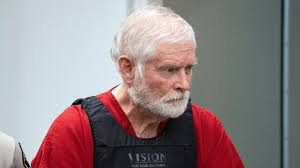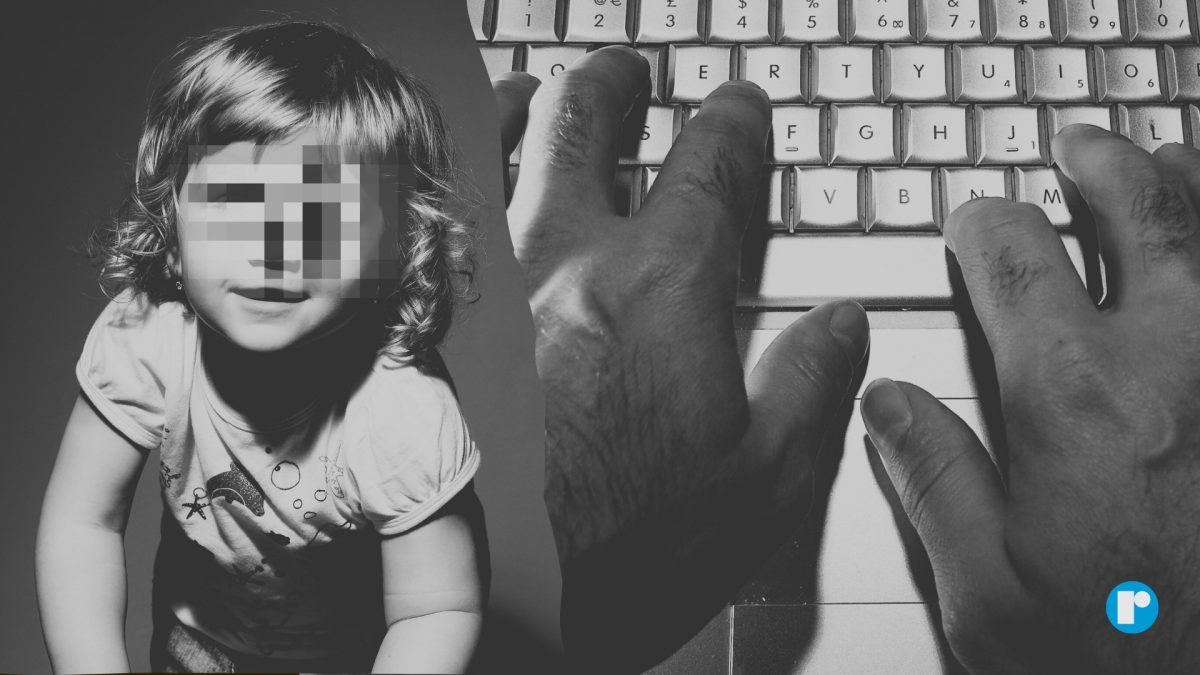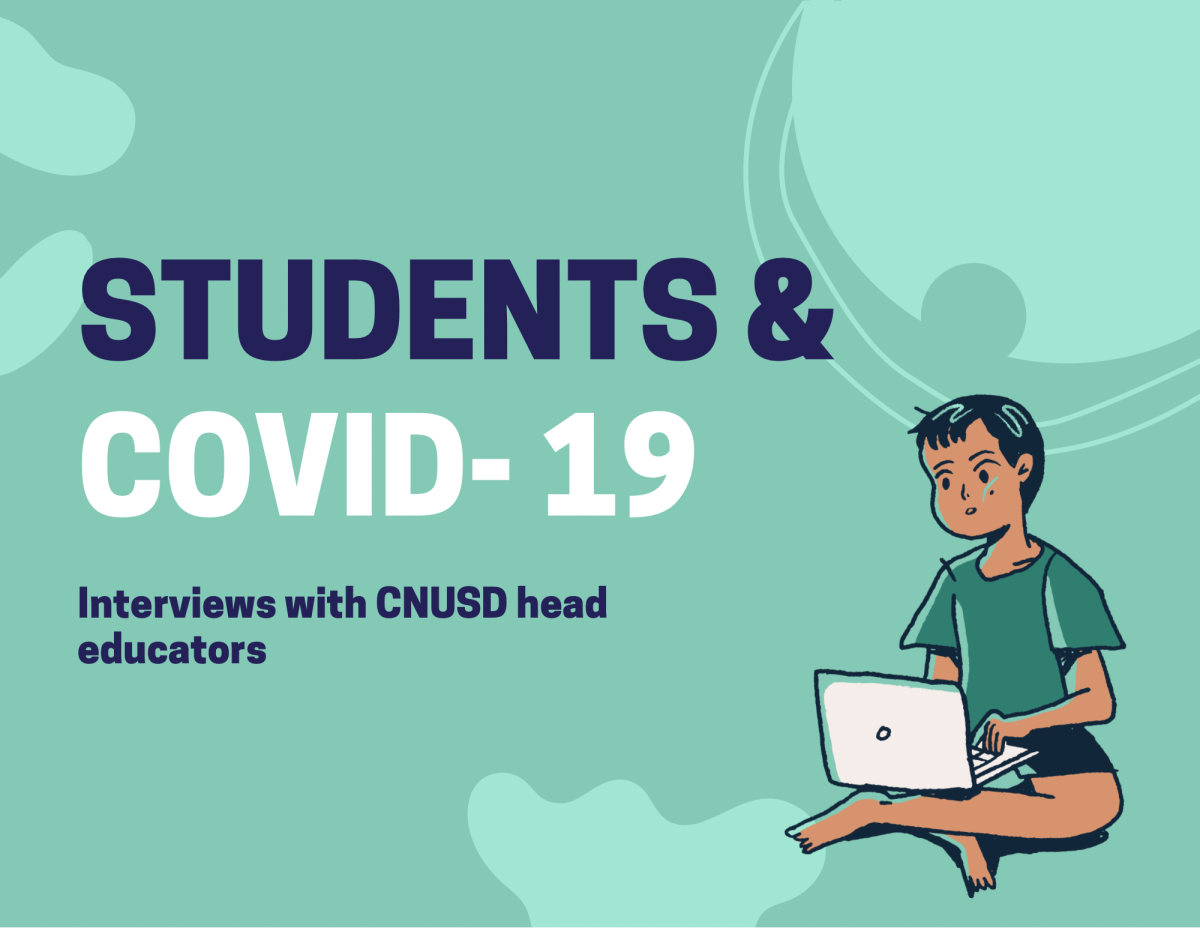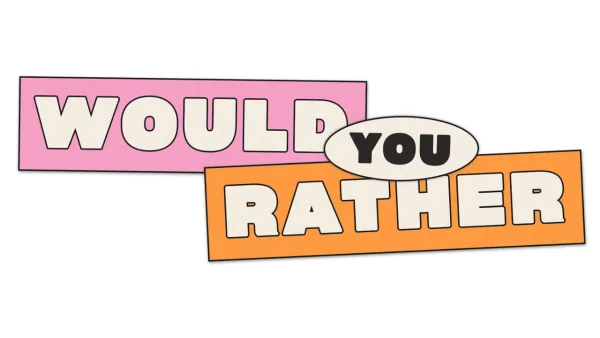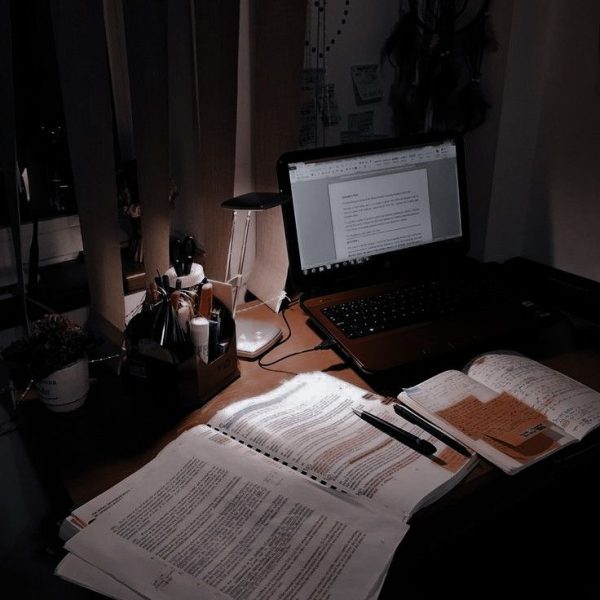About
Mission Statement:
The Shark Attack is a student-run newspaper whose purpose is to bring awareness to issues that are relevant to and impact the students, staff, and community of Santiago High School. We strive to preserve meaningful reportorial journalism and give students a forum for written expression while staying ethical, trustworthy and unbiased.
“Congress shall make no law…abridging the freedom of speech, or of the press….”
-The First Amendment to the Constitution of the United States of America
“The vigilant protection of constitutional freedoms is nowhere more vital than in the community of American schools.”
-Tinker v. Des Moines Independent Community School District
The Shark Attack Editorial Policy pertains to all Shark Attack media, including the online newspaper, print paper, and social media accounts.
The Shark Attack is the official student-produced news and information published/produced by Santiago High School students. The Shark Attack has been established as a designated public forum for student editors to inform and educate their readers as well as for the discussion of issues of concern to their audience. It will not be reviewed or restrained by school officials prior to publication or distribution. Advisers may – and will coach and discuss content – during the writing process.
Because school officials do not engage in prior review, and the content of The Shark Attack is determined by and reflects only the views of the student staff and not school officials or the school itself, its student editorial board and responsible student staff members assume complete legal and financial liability for the content of the publication. Editorials are the personal viewpoints of the writers and do not necessarily reflect the oficial opinion of The Shark Attack.
I. FREEDOM OF THE PRESS
As it is essential to preserve the freedom of the press in order to preserve a free society,
- The media will serve the best interest of the students and faculty of Santiago High School, keeping itself free from any commercial obligations distracting from this purpose; this is defined by the media itself;
- Any decisions affecting the publications on all levels will be made by the editorial board, the adviser is allowed to give legal advice and his/her opinion, but the final decision rests in the hands of the editorial board;
- Only the editorial board may prevent material it judges to be in violation of the media editorial policy, from being printed/published;
- All media will vigorously resist all attempts at censorship, particularly pre-publication censorship;
- All media retain the right to publish any and all material attained through an interview by a staff member of the publications staff, holding that the interviewee was made aware that the information could be published in any form at any time;
- All student media referenced in this editorial policy are designated public forums;
- Student journalists may use print and electronic media to report news and information, to communicate with other students and individuals, to ask questions of and consult with experts, and to gather material to meet their newsgathering and research needs;
- The Shark Attack and its staff are protected by and bound to the principles of the First Amendment and other protections and limitations afforded by the Constitution and the various laws and court decisions implementing those principles;
- The Shark Attack will not publish any material determined by student editors or the student editorial board to be unprotected, that is, material that is libelous, obscene, materially disruptive of the school process, an unwarranted invasion of privacy, a violation of copyright, or a promotion of products or services unlawful (illegal) as to minors as defined by state or federal law;
- Definitions and examples for the above instances of unprotected speech can be found in Law of the Student Press published by the Student Press Law Center.
II. THE EDITORIAL BOARD
- The editorial board will consist of all student staff editors.
- The editorial board decides on all decisions that pertain directly to Shark Attack media and their interests.
- No member of the editorial board shall have more than one vote on the board.
- All members of the editorial board and the adviser will elect a replacement for board members who have been dismissed.
- All members of the editorial board are expected to know their duties and jobs in the room and must understand the consequences of not fulfilling said jobs.
- The student editor and staff who want appropriate outside legal advice regarding proposed content – should seek attorneys knowledgeable in media law such as those of the Student Press Law Center. Final content decisions and responsibilities shall remain with the student editorial board.
- The duly appointed editor or co-editors shall interpret and enforce this editorial policy.
III. THE ADVISER
- The adviser is a professional teaching staff member and is in charge of the class just as in a conventional classroom situation.
- Is a certified journalism teacher that serves as a professional role model, motivator, catalyst for ideas and professionalism, and an educational resource.
- Provides a journalistic, professional learning atmosphere for students by allowing them to make the decision of content for the media and ensuring the media will remain an open forum.
- Guides the newspaper staff in accordance with approved editorial policy and aids the educational process related to producing the newspaper.
- May caution, act as legal consultant and educator terms of unprotected speech but has no power over censorship or veto except for constitutionally valid reasons.
- Will keep abreast of the latest trends on journalism and share these with students.
- Will submit the school newspaper content produced by the students to rating services and contests in order for the school publications staff to receive feedback.
- Will forward any received correspondence and/or information to the appropriate editors.
- Will provide information to the staff about journalism scholarships and other financial aid, and make available information and contacts concerning journalism as a career.
- Will work with the faculty and administration to help them understand the freedoms accorded to the students and the professional goals of the school publications.
- The adviser will not act as a censor or determine the content of the paper. The adviser will offer advice and instruction, following the Code of Ethics for Advisers established by the Journalism Education Association as well as the Canons of Professional Journalism. School officials shall not fire or otherwise discipline advisers for content in student media that is determined and published by the student staff
IV. THE BUILDING ADMINISTRATION
- The Santiago High School administration will provide the students of SHS with a qualified journalism instructor to serve as a professional role model, adequate classroom equipment, and space for a sound journalism program.
- SHS administration will offer equal opportunity to minority and/or marginalized students to participate in journalism programs.
- SHS administration is not required to view and approve publication content before publishing.
V. CONTENT OF THE SHARK ATTACK
A. INTRODUCTION
All content decisions will be made in occurrence to the following provisions while keeping in mind that the overall purpose, role, and goal of The Shark Attack is to
- Inform, interpret, and entertain their viewers through accurate and factual reports, where information has been thoroughly gathered and information has been completely verified;
- Serve as an educational laboratory experience for those on staff;
- Be accurate, fair, and impartial in its coverage of issues that affect the school community;
- The Shark Attack will not avoid publishing a story solely on the basis of possible dissent or controversy;
- Cover the total school population as effectively and accurately as possible;
- The staff of The Shark Attack will strive to report all issues in a legal, objective, accurate and ethical manner, according to the Canons of Professional Journalism developed by the Society for Professional Journalists. The Canons of Professional Journalism include a code of ethics concerning accuracy, responsibility, integrity, conflict of interest, impartiality, fair play, freedom of the press, independence, sensationalism, personal privacy, obstruction of justice, creditability, and advertising.
B. REGARDING PROFANITY
- The media will not print unnecessary profanity.
- The editorial board will make the decision on whether the content is considered profane or whether it is a cultural or non-vulgar slang term.
- The editorial board reserves the right to edit quotes for unnecessary profanity or unnecessarily offensive words, quotes that have been edited will be noted accordingly when published.
- Any edited quote will be read back to the source prior to publishing and sources will have a chance to make changes.
- Staff interviewers have the right to ask a source when necessary to repeat a quote without the use of profane language.
C. REGARDING STAFF WRITING
- All writing in the media, other than letters to the editor in the newsmagazine, will be written by students of the journalism program and will not be accepted otherwise.
- WHS students outside of the media staff will have the opportunity to submit writing to the media.
- Any writing submitted from an outside source for use will be accepted upon request of the editorial board or when open opportunities arise and will be viewed by EICs and advisers for verification.
- Any material submitted from an outside source can be edited by the editorial board and must comply with this policy.
- Writing must be the original work of the writer and not previously published in any publication unless otherwise specified by the adviser and EICs.
D. REGARDING EDITORIALS
- All editorials printed will be bylined as: “on behalf of Editorial Staff” unless it is the opinion of a single student.
- Editorial ideas may be submitted to the editorial board by all members of the appropriate staff.
- All printed editorial subject matter will be determined by the editorial board.
- The media will not publish any material for which there is evidence that the author is using the paper for inappropriate personal gain.
- The media will endeavor to provide a chance for comment on all sides of a critical issue in the same edition.
- The editorial board, which consists of the staff’s student editors, will determine the content, including all unsigned editorials. The views stated in editorials represent that of a majority of the editorial board. Signed columns or reviews represent only the opinion of the author.
E. REGARDING CONTROVERSIAL ISSUES
- All coverage of controversial issues will occur in a timely subject.
- All sides of the issue will be presented and reviewed so as to refrain from any bias, with exception of opinions.
- In news, all sides of a school, community, city, state, national, or international political issue will be presented factually so as to inform rather than promote or endorse.
- The media will not publish material that is unnecessarily obscene, libelous, unwarranted invasive of privacy.
- The media will not attack.
- If a question on the veracity of publication persists, the issue will be brought to the editorial board who must consider the following questions before publication of the piece:
-
- Why is it a concern?
- What is its journalistic purpose?
- Is the information accurate and complete?
- Is any important POV omitted?
- How would we feel if the story was about ourselves or someone we know?
- What are the consequences of the publication?
- Is there a logical explanation to anyone who challenges the issue?
- Is it worth risking our credibility?
- What are the alternatives?
F. REGARDING BYLINES
- All articles, graphics, photos, art, columns, pages, reviews, and other material creatively conceived, with the exception of staff editorials, mug shots, and cut-outs will be bylined with the producer’s name.
- All bylined writers will be held accountable for their work.
- When more than one person has contributed creatively to a piece of work, any person who has contributed to the work must be bylined as a producer.
G. REGARDING NEWS AND FEATURES
- The media will specialize in and emphasize informing their readers of school news and unique students of the Santiago High School community.
- The media will cover community, state, national, and international news if it is directly relevant to the school community, and includes a local angle.
- The media will strive to provide coverage of many school organizations and functions but understands that not everything can be covered.
- When faced with undesirable news such as student or staff or faculty crimes, the publications will endeavor to publish the facts correctly, explain the issue, and put a stop to any speculative stories that inevitably develop.
- Major district issues and news will be a priority over school news (these major issues will be decided by the editorial board)
H. REGARDING ILLUSTRATIONS, PHOTOGRAPHS, GRAPHICS, ETC.
- All cutlines will record the who and other necessary information in the photo.
- All photographs must be captioned and bylined, with the exception of mugs and cutouts.
- Bylines are required on all online photos and galleries.
- Any photographs that contain any inappropriate attire or actions must be reshot.
- The artwork represents the interpretations of the artist, not necessarily of the staff or WHS.
- The publications will not publish any photos, illustrations, etc. that ridicule, demean, or misleadingly represent any individual or group.
- Electronic manipulations changing the essential truth of the photo or illustration will be clearly labeled if used.
I. REGARDING ERRORS
- Concerns about errors in the school media may be submitted through the adviser: [email protected]
- The editorial board retains the right to determine whether, in fact, an error has been made.
- Known and or found errors that are brought to the attention of the school media will be addressed regardless if realized by the author, audience, or staff member.
- Staff members will strive to correct errors prior to publication; however, if the editorial board determines a significant error is printed, the editorial board will determine the manner and timeliness of a correction.
- Major corrections are determined by the editors and adviser.
- If changes are made to a web story once a story has been posted, the change will be noted along with the date and time the change was made.
J: REGARDING LETTERS TO THE EDITOR AND ONLINE COMMENTS
- Letters to the editor will be printed in the opinion section of the newspaper or on the website.
- Guidelines to write letters to the editor will be printed for every issue in the opinion section of the paper and available online at shssharkattack.com.
- Letters to the editor may be submitted to Mrs. Larson’s mailbox, room L106, or emailed at this address: [email protected].
- Letters to the editor should not exceed 300 words, must be signed, and must include the writer’s address and phone number for verification.
- Letters to the editor will be verified by a member of the editorial board to determine the authenticity of the writer.
- No material will be printed where content is obscene, invasive of others’ privacy, encouraging physical disruption of school activities, and/or implies libel.
- The Shark Attack editorial board reserves the right to withhold a letter or column or other submission and/OR return it for revision if it contains unprotected speech or grammatical errors that could hamper its meaning. Deadlines for letters and columns will be determined by each year’s student staff, allowing sufficient time for verification of authorship prior to publication.
- The Shark Attack will only publish one letter, per author, per issue.
- All letters to the editor become the property of the school newspaper upon receipt and will not be returned to the author.
- Online comments will require a name and email address submitted that are verifiable.
- Online comments will automatically post.
- Alerts will be sent to staff editors each time a comment is posted to the site.
- Online comments that are found in violation of the editorial policy will be removed as quickly as possible.
- Personal attacks are not allowed.
K: SOCIAL MEDIA
- Social media will be used to promote The Shark Attack, to promote published content, and to engage the SHS community.
- The editorial board reserves the right to remove comments that violate any provisions hitherto outlined by this policy.
- The information posted on social media platforms should be held to the same standard as all other reporting in terms of information gathering and fact-checking.
- The official social media accounts should avoid the promotion of events and remain objective, reporting what is fact. Reporters using personal social media to cover events should do the same.
- The information gained through social media channels should be verified through multiple channels before passing it along to others.
- Audience engagement through social media should be done in a professional manner.
- Staff members using applications to post updates to social media accounts should have separate applications for their personal accounts and for the school media accounts. This will limit the chance of a post being sent from the wrong account.
- Transparency is important. Mistakes made on social media posts should be corrected as soon as possible and any deleted posts should be acknowledged in subsequent postings.
L: PRIOR REVIEW POLICY
- Sources will be able to have quotes read back at the time of the interview or at the reporter’s initiative.
- Sources will not be able to arbitrarily demand to read the reporter’s completed story and then perform editing tasks on that story.
- The media reporters will endeavor to include the name and identity of all sources if the reporter believes that doing so will not result in endangerment, harassment, or any other form of undue physical, mental, emotional anguish for the source.
- The media reporters will not, within all boundaries of the law, reveal a source who asks to remain nameless.
- All media interviewers will respect the interviewee’s rights to have information remain “off the record” if the fact is known before giving the information to the interviewer.
- The media will not be reviewed by anyone outside of the editorial board aside from the adviser prior to its release to the public, the adviser is allowed to review the publication, but not required to, for the sole purpose of acting as legal consultant and educator in terms of unprotected speech; the adviser reading content is not considered prior review unless he/she makes changes or directs changes.
M: STUDENT & STAFF PUBLICATION POLICY
- All students and staff of Santiago High School are eligible for publication in The Shark Attack.
(a) Pupils of the public schools, including charter schools, shall have the right to exercise freedom of speech and of the press including, but not limited to, the use of bulletin boards, the distribution of printed materials or petitions, the wearing of buttons, badges, and other insignia, and the right of expression in official publications, whether or not the publications or other means of expression are supported financially by the school or by use of school facilities, except that expression shall be prohibited which is obscene, libelous, or slanderous. Also prohibited shall be material that so incites pupils as to create a clear and present danger of the commission of unlawful acts on school premises or the violation of lawful school regulations, or the substantial disruption of the orderly operation of the school.
(b) The governing board or body of each school district or charter school and each county board of education shall adopt rules and regulations in the form of a written publications code, which shall include reasonable provisions for the time, place, and manner of conducting such activities within its respective jurisdiction.
(c) Pupil editors of official school publications shall be responsible for assigning and editing the news, editorial, and feature content of their publications subject to the limitations of this section. However, it shall be the responsibility of a journalism adviser or advisers of pupil publications within each school to supervise the production of the pupil staff, to maintain professional standards of English and journalism, and to maintain the provisions of this section.
(d) There shall be no prior restraint of material prepared for official school publications except insofar as it violates this section. School officials shall have the burden of showing justification without undue delay prior to a limitation of pupil expression under this section.
(e) “Official school publications” refers to material produced by pupils in the journalism, newspaper, yearbook, or writing classes and distributed to the student body either free or for a fee.
(f) This section does not prohibit or prevent the governing board or body of a school district or charter school from adopting otherwise valid rules and regulations relating to oral communication by pupils upon the premises of each school.
(g) An employee shall not be dismissed, suspended, disciplined, reassigned, transferred, or otherwise retaliated against solely for acting to protect a pupil engaged in the conduct authorized under this section, or refusing to infringe upon conduct that is protected by this section, the First Amendment to the United States Constitution, or Section 2 of Article I of the California Constitution.
(Amended by Stats. 2010, Ch. 142, Sec. 2. (SB 438) Effective January 1, 2011.)


